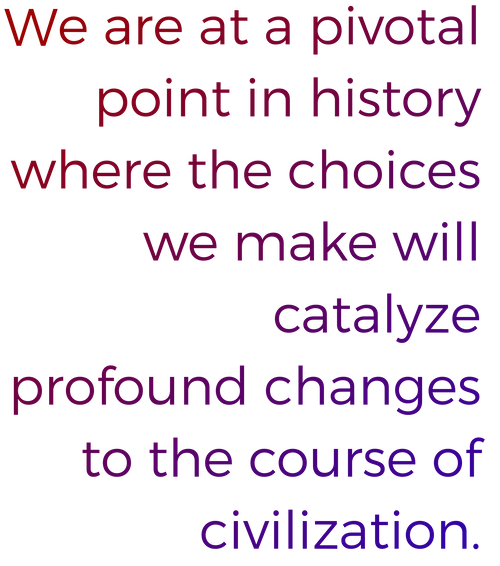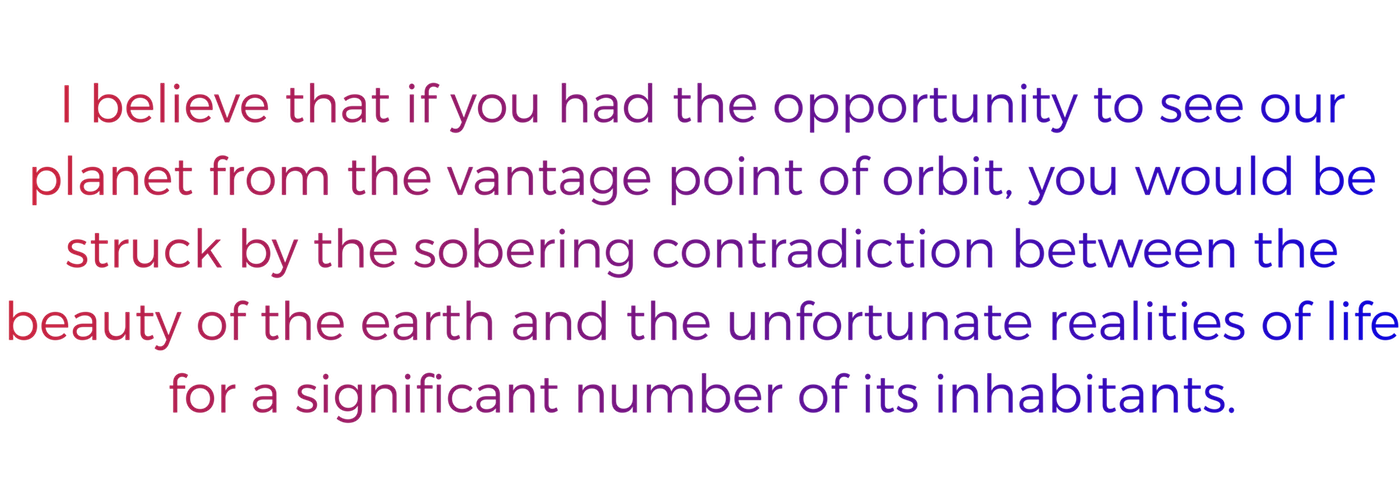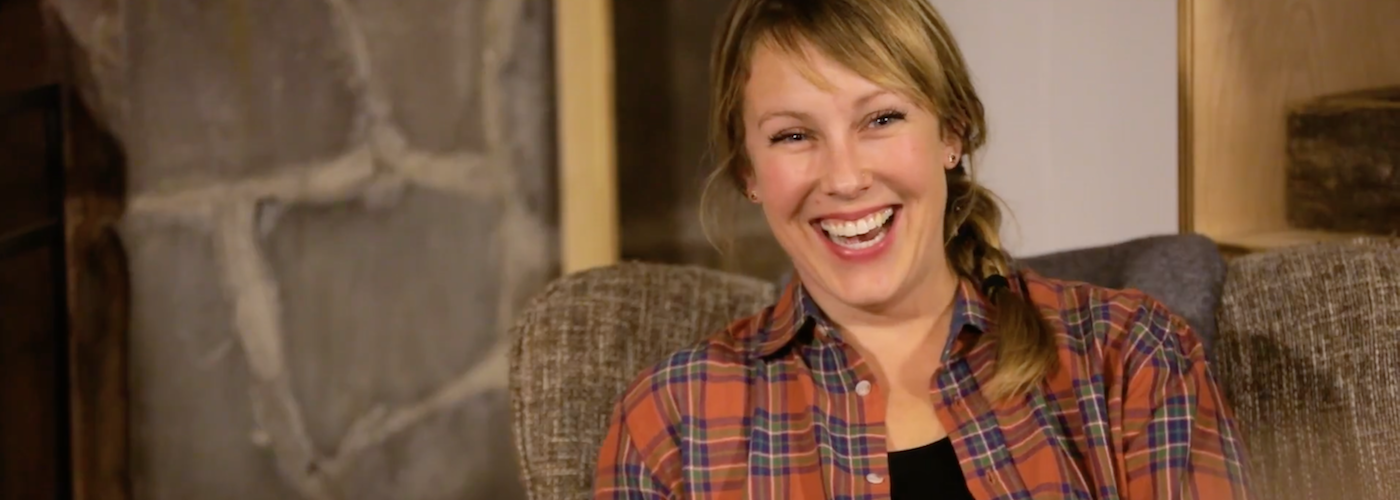 magine that you are on the International Space Station and are able to look down at our beautiful planet turning slowly below you. Looking at the planet, you see dancing neon curtains of green and red auroras that seem so close you could reach out and touch them. You see the glowing, iridescent, emerald waters of the Caribbean, the bright tan and crimson of Libya cast against the deep blues of the Mediterranean, the snow-capped mountain ranges of the Himalayan plateau that seem to jut out from the limits of the atmosphere, and the incomprehensible vastness of the African continent.
magine that you are on the International Space Station and are able to look down at our beautiful planet turning slowly below you. Looking at the planet, you see dancing neon curtains of green and red auroras that seem so close you could reach out and touch them. You see the glowing, iridescent, emerald waters of the Caribbean, the bright tan and crimson of Libya cast against the deep blues of the Mediterranean, the snow-capped mountain ranges of the Himalayan plateau that seem to jut out from the limits of the atmosphere, and the incomprehensible vastness of the African continent.
It’s been said that in order to fully understand a problem, you need to get outside of that problem. It is for this reason that political outsiders often appear to be a very attractive option for voters. But to really get outside of the problems facing our world, we must zoom out to the point at which all factors impacting our decisions can be framed.

I believe that if you had the opportunity to see our planet from the vantage point of orbit, you might look at the world from a slightly different perspective. I believe that you would be struck by the sobering contradiction between the beauty of our planet and the unfortunate realities of life for a significant number of its inhabitants.
But I also believe seeing the planet from space would fill you with hope. Seeing the unlimited potential of what we can accomplish when we work together, as demonstrated by the International Space Station itself, would extend your optimism. Your definition of the word “home” would rapidly expand to encompass the planet in its entirety, and for the first time, you might fully understand what it means to be one human family.
I only believe that these things would happen to you — I don’t know that for a fact. The only thing I can say for certain is that they happened to me.

 rom the vantage point of the Orbital Perspective, it is clear that we are at a pivotal point in history where the choices we make will catalyze profound changes to the course of civilization. But we can make a course correction to the trajectory of our planetary society. We have an opportunity to nudge our civilization toward a future where all people can live in harmony with each other and with the planet, where all people can live in peace and dignity, and where the needs of all are met.
rom the vantage point of the Orbital Perspective, it is clear that we are at a pivotal point in history where the choices we make will catalyze profound changes to the course of civilization. But we can make a course correction to the trajectory of our planetary society. We have an opportunity to nudge our civilization toward a future where all people can live in harmony with each other and with the planet, where all people can live in peace and dignity, and where the needs of all are met.
A future where individuals, organizations and nations set aside differences and work together for the benefit all of humanity. Where everyone understands that their own personal and national interests must be pursued in the context of an overarching planetary society. A future where all people have the tools they need to understand the long-term economic and environmental effect of their actions on society and the overall planetary ecosystem. A future where leaders and decision-makers across all disciplines use the best data available to ensure that the long-term impacts of their decisions keep us on a positive trajectory.
A future where all people have the tools they need to understand the long-term economic and environmental effect of their actions on society and the overall planetary ecosystem. A future where leaders and decision-makers across all disciplines use the best data available to ensure that the long-term impacts of their decisions keep us on a positive trajectory.
A future where the requirements for the growth of our economy are met without causing any harm to people, the planet, or to any of the species that we share our planet with.
A future where openness and transparency fuel tremendous economic growth and enable profound collaboration between scientists, politicians, and nations.
A future where education instills in every student the awe and wonder of our beautiful world and where every student is afforded the opportunity to engage with this wonder in a way that contributes to the well-being of our world.

 n order to begin to steer civilization toward this possible future, we need to change the way in which we make decisions and build policies, especially in a time of global political upheaval. To help ensure that the trajectory that decisions put us on is the best possible, I offer the following five tests:
n order to begin to steer civilization toward this possible future, we need to change the way in which we make decisions and build policies, especially in a time of global political upheaval. To help ensure that the trajectory that decisions put us on is the best possible, I offer the following five tests:
From the Orbital Perspective, decisions are made:
1. using the most credentialed, peer-reviewed scientific data available
Decisions that are based on the most accurate data possible enable the most accurate predictions of the decisions’ effect on the trajectory of our planetary society
2. in the context of our entire world, considering the big-picture implications
In addition to the immediate area of concern, does the decision cause harm elsewhere? At a minimum, an Orbital Perspective solution should be neutral outside the area of concern — ideally it would be beneficial and restorative.
Decisions can not be solely driven by party lines or other parochial or tribal factors. If maintaining party loyalty at the expense of the greater good is the driving force of a decision, the course of action is fundamentally misguided and will be destructive in the long-run.

3. considering the long-term (multi-generational) effects to all
If you project out the effects of a course of action to your grandchildren’s generation, are the effects positive and restorative or are they detrimental? If our grandchildren will be harmed by a decision, then we’re sacrificing our progeny for our own present benefit.
4. with open and transparent inputs and courses of action
Does the solution permit everyone to see “how the sausage is being made?” Would the course of action survive a spotlight? If a decision requires secrecy to be successful, because it violates one of the other four Orbital Perspective factors, it will fail us in the long-term.
5. with the priorities, Planet-Society-Economy as opposed to Economy-Society-Planet
If short-term financial factors are the driving force of a decision, the course of action will not be sustainable. The reality of the world we live in is that the economy is the wholly owned subsidiary of the biosphere. Any course of action that treats the environment as the wholly owned subsidiary of the economy is not in accordance with reality and will be destructive in the long-term.
In order to ensure we’re steering Spaceship Earth on the best course possible, the answers to all five tests need to be positive.
Imagine what the world could look like in the next 20 or 50 years if decisions were made from the Orbital Perspective. How many seemingly intractable problems would be solved? With unlimited possibilities, what kind of future would you want to build?
![]()
Famed Astronomer Carl Sagan has said, “For the moment the Earth is where we make our stand.” The only way we will be able to overcome the challenges facing our world is by working together. An effort to use the Orbital Perspective to guide the trajectory of our planet is forming and gaining momentum. The first step of this journey is the launch of a Massive Open, Online Course (MOOC) called Introduction to the Orbital Perspective. I invite you to join us on this journey. Please enroll in the free course which is a jump-off point to other initiatives to help design a more positive, visionary, and restorative future.




